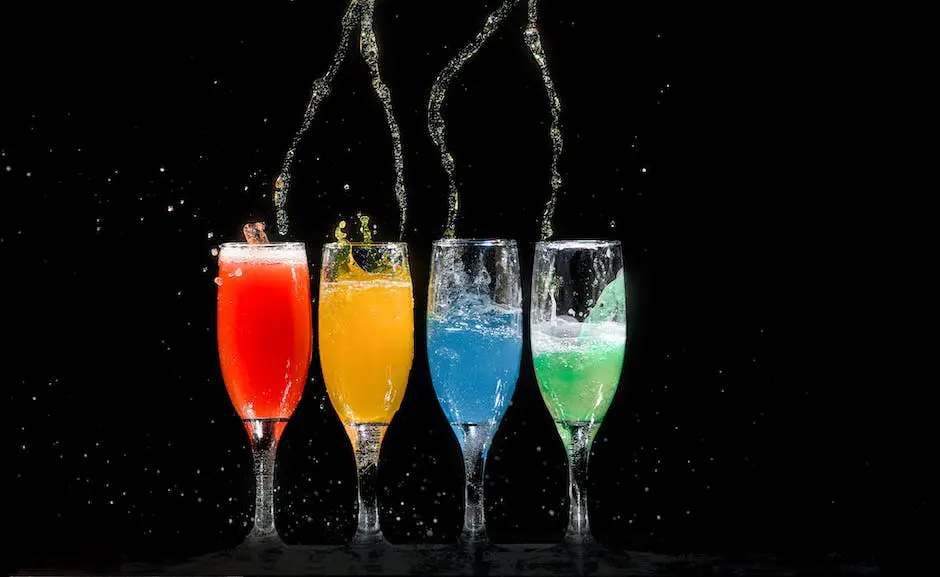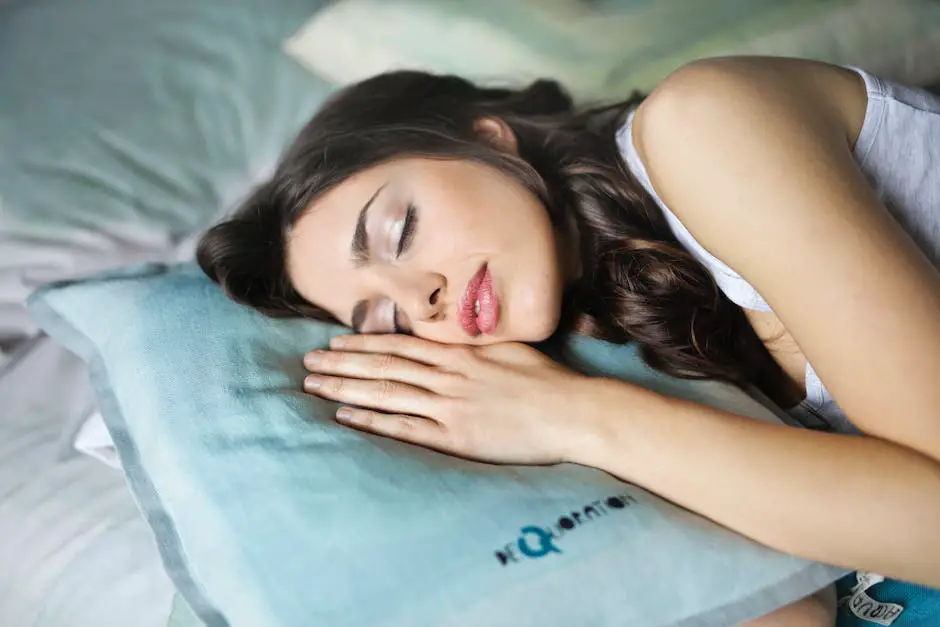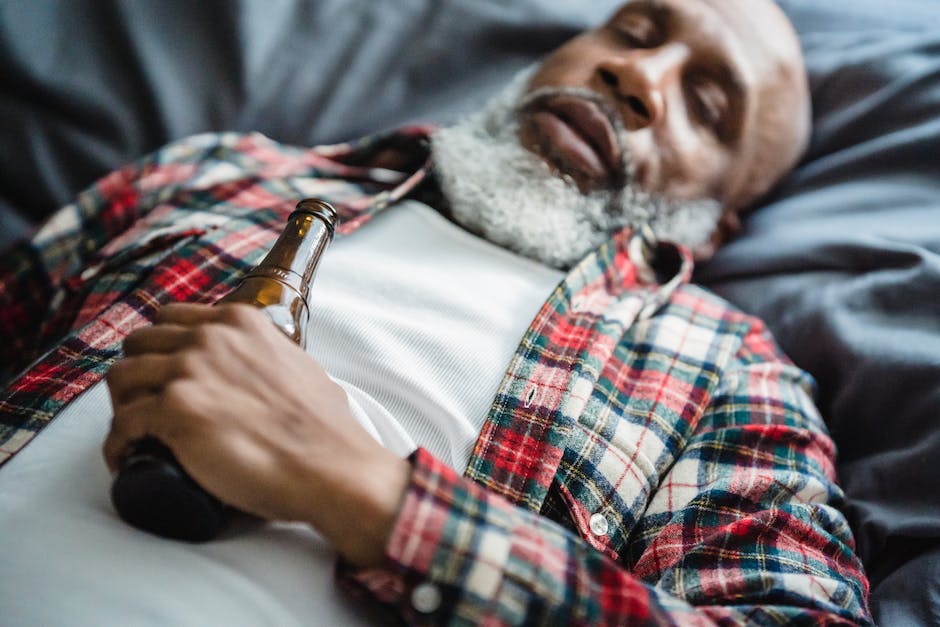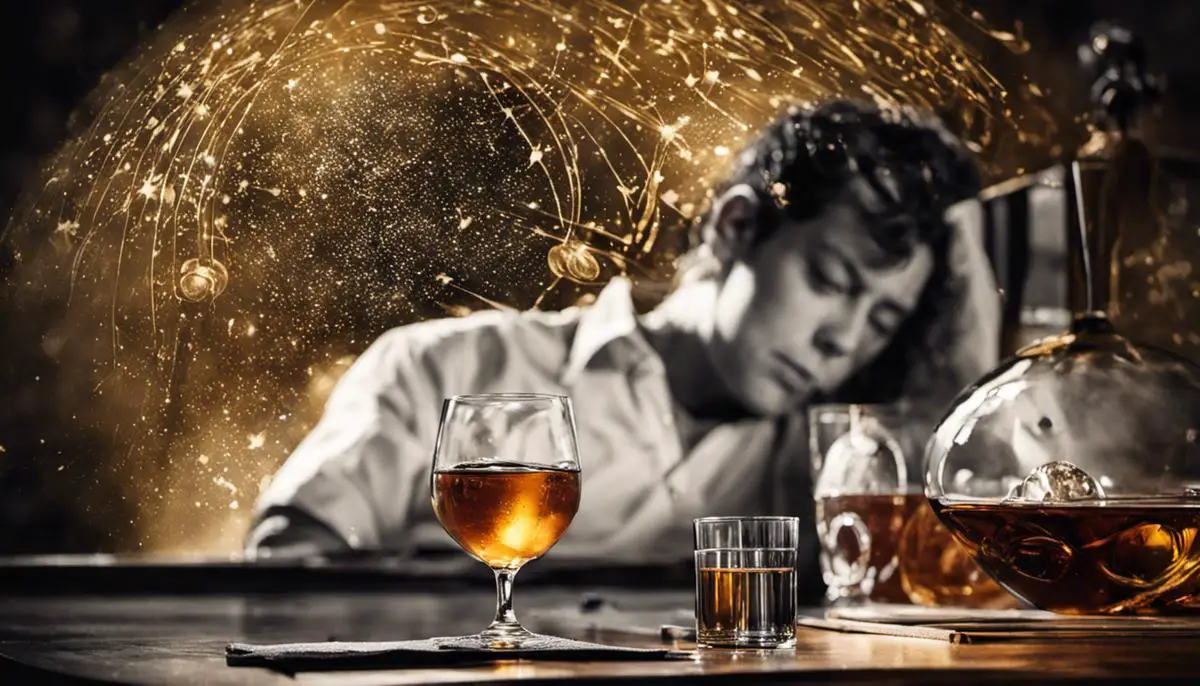For centuries, scientists, researchers, philosophers, and the lay public alike have been fascinated with the intricate dance of alcohol’s effects on the brain and our subsequent dream recall. Alcohol, a potent part of countless cultures worldwide, has been observed to significantly alter the human brain’s functionality – most notably our sleeping patterns and REM (Rapid Eye Movement) sleep, a crucial stage for the formation and recall of dreams. Far from a simplistic interaction, the alcoholic influence extends into the realm of our subliminal minds, becoming a key player in the continual mystery of why we dream and how we remember them – a subject of exhaustive scientific effort, endless hypotheses, and studies that seek to unravel the complex alcohol-brain relationship.
Understanding Alcohol’s Effects on the Brain
Alcohol’s General Impact on Brain Functioning
Alcohol influences behavior and mental functions by interacting with various regions within the brain. As a depressant, alcohol primarily dampens the function of the central nervous system which can directly and indirectly hinder a number of cognitive processes. It interferes with the communication pathways and can affect the way the brain looks and works. The alterations caused by alcohol create difficulties with coordination, thinking, and memory. Long-term use can result in permanent changes in brain structure and functioning, leading to cognitive deficits and a number of mental health disorders.
Specific Impact on Sleep and the REM Stage
One crucial area where alcohol exerts an impact is sleep. It might seem that alcohol aids sleep due to its initial sedative effect that helps to induce sleep. However, as the body starts to process the alcohol, this sedative effect disappears, leading to interrupted sleep and frequent awakenings.
Alcohol particularly suppresses the Rapid Eye Movement (REM) stage of sleep, which is a crucial stage for mental restoration, learning, and memory formation, including the consolidation of cognitive and emotional information into memory. Alcohol, by interfering with the REM stage, results in fragmented and low-quality sleep.
Dreaming predominantly takes place in the REM stage. This means that when alcohol suppresses this stage, it stifles our dreaming process, and subsequently, our ability to remember these dreams.
Unraveling the Relationship between Alcohol and Dream Recall
Cutting-edge scientific studies have tirelessly delved into the link between alcohol consumption and the ability to recall dreams. A frequently quoted theory posits that the suppressive effect of alcohol on the duration and frequency of REM sleep plunges us into a more profound, less dream-infused sleep stage, hence leading to a limited memory of dreams.
Peculiarly, one investigation discovered that while an intoxicating level of alcohol consumption indeed impeded the time spent in REM sleep, it also led to an amplified dream recall. This enigmatic outcome could potentially be traced to multiple awakenings that usually follow after alcohol intake. Such fragmentary sleep might enhance dream recall, primarily because these awakenings likely occur nearer to REM sleep episodes, making dreams easier to remember.
Nonetheless, repeated heavy alcohol intake before bedtime can over time result in sleep disorders like insomnia and sleep apnea. Not only could this impair dream recall but it could also jeopardize overall health and cognitive function due to disrupted sleep quality and continuity.
Although it is imperative to continue unraveling the enigma of the alcohol-brain relationship, the consensus among researchers is that alcohol has a significant impact on sleep and accordant dream recall. These revelations underscore the essence of maintaining good sleep health for optimum brain activity.

Dream Recall: An Overview
Diving Deeper into the Science of Dreaming
Deciphering the intricacies of dreaming is a task that’s still ongoing in the scientific community. Dreaming primarily unfolds during REM (Rapid Eye Movement) sleep, a stage characterized by heightened brain activity, akin to our waking moments. The mechanics of REM sleep are regulated by neurotransmitters, with acetylcholine being a key player. Regions of the brain such as the amygdala, which governs our emotions, and the hippocampus, responsible for memory storage, emerge as hotspots of activity during this phase.
Theories of Dreaming
There are numerous theories proposed to explain why we dream. The Activation-Synthesis Hypothesis proposed by Harvard Psychiatrists J. Allan Hobson and Robert McCarley suggests that dreams are a byproduct of brain activation during REM sleep. In contrast, the Threat Simulation Theory by Finnish psychologist Antti Revonsuo posits that dreams are a form of ancient defense mechanism that prepares us for real-life threats.
On the other hand, the Information Processing Theory proposes that dreams are a way for the brain to process and consolidate information from the day. This theory has gained significant support as it ties in with core functions of the hippocampus and its role in memory formation during sleep.
Unraveling the Link Between Alcohol and Dream Recall
The ability to recall dreams after awakening, known as dream recall, is subject to various factors including the duration and quality of sleep, individual personality traits, and the consumption of certain substances like alcohol. Increased periods of REM (Rapid Eye Movement) sleep are often accompanied by enhanced dream recall. REM sleep tends to peak during the latter stages of the sleep cycle, which explains why dreams are often remembered prior to waking.
Alcohol’s impact on sleep architecture includes a reduction in the initial amount of REM sleep, resulting in a phenomenon called REM sleep rebound. This could trigger intense dreams in the latter half of the sleep cycle, consequently boosting dream recall. However, alcohol can also negatively affect overall sleep quality and memory recall, including dreams. Prolonged heavy drinking may lead to sleep fragmentation and a decrease in overall REM sleep, thereby compromising dream recall.
Furthermore, alcohol can influence the content and nature of dreams. A study published in the journal “Alcohol” disclosed that withdrawal from alcohol could lead to peculiar and vivid dreams or nightmares. These intense episodes might be more memorable but often correlate with poor sleep quality, a common withdrawal symptom.
In summary, the interaction between alcohol, dreams, and memory is complex and multi-faceted. Although alcohol might seem to heighten dream intensity and recall under certain conditions, it usually does so at the cost of overall wellbeing and sleep quality.

Alcohol and Dream Recall: Research Findings
Exploring Alcohol’s Effect on REM Sleep
Studies have established a direct correlation between dream recall and alcohol intake, primarily due to the way alcohol disrupts the body’s sleep patterns. The REM sleep stage, typically punctuated with dreams, is significantly impacted by alcohol. Critical activities such as memory consolidation occur during REM sleep. Research at the University of Sydney suggests that alcohol can postpone the start of REM sleep, curtailing the overall duration spent in this vital sleep phase, subsequently impeding dream recall.
Alcohol and Fragmented Sleep
Studies have repeatedly shown that although alcohol may help an individual fall asleep, it can disrupt sleep patterns during the night. It increases non-REM sleep during the first half of the night, disrupting the natural sleep cycle and leading to a more fragmented and disrupted sleep in the latter part of the night, also known as rebound effect or alcohol-induced insomnia. This fragmentation can result in a decreased ability to remember dreams upon waking.
Alcohol and Cognitive Processes
Alcohol impacts several cognitive processes, including memory. According to a study done at Northwestern University, alcohol can interfere with how the hippocampus—a key region of the brain responsible for forming new memories—processes information. This includes memories formed during REM sleep, potentially resulting in less dream recall upon waking.
Contrasting Research Findings
Not all research converges on these points. Some studies suggest that light to moderate alcohol consumption may not significantly impact dream recall. Research conducted at the University of Bedfordshire found no sign of dream recall impairment in moderate drinkers as compared to non-drinkers. In contrast, heavy drinkers showed impaired recall, which the researchers speculated might correlate with dose-dependent effects on REM sleep.
Debates in the Realm of Science Regarding Alcohol and Dream Recall
The intricacies of how alcohol and dream recall are related is still a topic of much debate within the scientific circles. Factors such as how much alcohol is consumed, individual drinking habits, varying rates of alcohol metabolism, and even the presence of sleep disorders can significantly alter the dynamics of this relationship. Further complicating the matter, formulating definitive conclusions is a daunting task due to ethical considerations, as well as the difficulties of maintaining controlled conditions during sleep research. Thus, despite a plethora of evidence suggesting alcohol impairs one’s ability to recall dreams, fully comprehending the layers of this relationship calls for much more research.

Personal Testimonies and Case Studies
The Impact of Alcohol on Dream Recall: Personal Experiences
In the pool of personal accounts shared by many, the consumption of alcohol seems to considerably affect their ability to remember their dreams. A recurring observation is that of dream recall becoming fragmented or even disrupted. A noteworthy example comes from the New Jersey-based nurse, Martha, who noticed her ability to recollect dreams being “spotty and inconsistent” during periods of her life when she consumed alcohol more liberally. During times of moderate drinking, however, her ability to remember detailed dreams significantly improved.
In line with Martha’s experience, testimonies from university students across U.S. echo a similar pattern. A standout account comes from a graduate student, Josh, at the University of Michigan who reported vivid dreaming and superior dream recall during alcohol-free phases. Conversely, the consumption of alcohol resulted in a failure to remember any elements of his dreams.
The plethora of personal experiences suggests a trend in dream recall within diverse populations, particularly under the influence of alcohol.
Case Study: Alcohol, Sleep Stage Disruptions, and Dream Recall
Relevant case studies have supported the key patterns revealed in these testimonies. A substantial body of evidence, from numerous peer-reviewed journals, suggests that alcohol consumption before sleep can inhibit REM sleep – the stage of sleep in which dreaming commonly occurs. This, in turn, can profoundly affect one’s ability to remember their dreams.
One particular case study from 2012 titled ‘Alcohol and sleep: a clinical perspective’ published in the Journal of Sleep Disorders and Therapy found that acute high doses of alcohol close to bedtime disrupted REM sleep in the latter part of the night. This resulted in reduced overall dream time and subsequently reduced recall of dreams upon waking. A main conclusion from this study was that the timing and amount of alcohol consumed could critically impact dream recall.
Contrasting Experiences: Alcohol as a Catalyst for Dream Recall
Yet, the effect of alcohol on dream recall isn’t universally negative. There are unique cases where alcohol appears to enhance dream recall and vividness. Let’s consider Terry, a professional writer from Chicago, who claimed that after drinking wine before sleep, he experienced hyper-realistic dreams which he could recall in outstanding detail.
A possible explanation for such experiences was suggested in a 2001 case study titled ‘Alcohol enhances dream activity during rapid eye movement sleep in alcohol-dependent patients’ published in the Journal of Sleep Research. This study showed that in certain cases, especially involving alcohol-dependent individuals, alcohol consumption could actually increase dream activity and vividness, potentially enhancing recall.
Significantly, the interaction between alcohol and dream recall varies greatly amongst individuals. This variation is likely influenced by a variety of factors including individual alcohol tolerance, timing and amount of alcohol consumed, and the person’s overall sleep health. Furthermore, research is ongoing to fully understand the mechanisms and impacts of alcohol on sleep and dreaming.

Comprised within the realm of scientific investigation and personal experiences, the multifaceted relationship between alcohol and dream recall unravels itself as an intriguing paradox of the human mind. While alcohol can serve as a social or relaxation tool, its effects seep into our subconscious, curiously manipulating our dream world and, in turn, our recollection of it. Profound personal narratives, paired with meticulous case studies, contribute to the growing body of research, providing a user-based perspective to complement the theoretical framework. With each new testament and academic endeavor, one is drawn further into the labyrinth of questions about how our cognitive processes are shaped by external influences and the inherent mysteries our minds hold.
